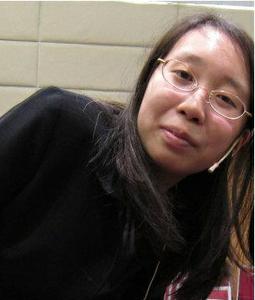ESP Biography
ANNABETH LEOW, race and ethnicity studies major
|
Major: CSRE College/Employer: Stanford Year of Graduation: 2016 |

|
Brief Biographical Sketch:
My academic interests include intersectional representations of race, gender, and disability in media and popular culture, and constructions of race, language, and identity in the post/colonial Malay Peninsula. Past Classes(Clicking a class title will bring you to the course's section of the corresponding course catalog)S3268: Constructing Chineseness in Splash! Fall 2013 (Nov. 02 - 03, 2013)
What does “Chinese” mean? Is it a language, a nationality, a race?
If “Chinese” refers to the Mandarin language, then are Cantonese, or Shanghainese still Chinese languages? If Chinese is a nationality, what becomes of people who live outside the PRC? And if Chinese is a race, what are ethnic groups like Hui or Manchu? What does it mean to identify with an ethnolinguistic group like Minnan or Hokkien?
This class will examine issues of ethnicity and transnationalism by looking at the political constructions of Chinese identity in various nation-states.
R2806: When the Pontianak Crosses the Sea—Multicultural Monstrosity in U.S. American Fiction in Splash! Spring 2013 (Apr. 13 - 14, 2013)
“Vampires, werewolves, and sex, oh my!” Where did the vampire come from? What are the cultural origins of the monsters in modern horror? And what sorts of spaces are available to monsters that come from traditions besides European folklore? In this class, we’ll look at the racialisation and gendering of the monstrous landscape in selected U.S. American works of fantasy fiction—the television series “Supernatural” and “The Vampire Diaries,” and the Neil Gaiman novel “American Gods.”
W2807: Constructing “Chineseness” in Splash! Spring 2013 (Apr. 13 - 14, 2013)
Places, peoples, languages—members of all these broad categories can fall under a single English word: Chinese. Are Cantonese and Hokkien dialects or languages? Are there multiple Chinese ethnicities? What makes a person “overseas Chinese?” Is there a Chinese diaspora? And how far must a person travel to stop being Chinese‽ This lecture will look at the historical and political processes of racial identity formation, and will address the ambiguity of the social constructs of “Chineseness.”
|
|
